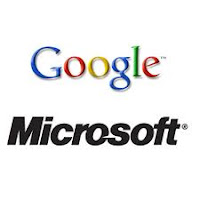On June 8 several major web companies including Microsoft, Google, Facebook and Yahoo will participate in World IPv6 Day. The event sponsored by the Internet Society will test flight IPv6, an upgrade to IPv4 which is becoming to be overloaded. The purpose of the 24 hour test is to motivate other companies using the Internet to transition and adapt their services and products to the IPv6.
IPv6 stands for Internet Protocol version 6, an increment to IPv4 which is the current public communication protocol being used globally but IPv4 is now running out of address space due to the ever expanding Internet. It can be installed just like any software in order to connect to the Internet and can also work with IPv4 without any special tools or manipulations.
Lynn St. Amour, president and CEO of Internet Society stated on IPv6 Forum.com," The Internet is for everyone. IPv6 represents the next stage of the Internet's evolution".
John Chambers, chairman of the board and CEO of Cisco Systems, Inc outlines Cisco's commitment to IPv6 by listing its benefits which include:
- Simplified packet header for routing efficiency.
-Mandatory IP Security (IPSec) implementation for all IPv6 devices. -Improved support for mobile IP and mobile computing devices.
-Enhanced multicast support with increased addresses and efficient mechanisms.
There are only 6% remaining of the domain name bandwidth for web addresses (IPv4 addresses) and they are expected to be exhausted by March 2012. The advent of the second Internet, IPv6, will be the remedy because there will be no more running out of web addresses.
According to Wikipedia the current first internet (IPv4) could allocate 4,294,967,296 addresses while IPv6 can support 340 undecillion addresses. Imagine that!
Search This Blog
Tuesday, June 7, 2011
Saturday, June 4, 2011
Intrusion Prevention System Help Avert Lockheed Attack
The recent "significant and tenacious" cyber attack on Lockheed Martin's information system could not have been averted without an intrusion prevention system installed on their network.
Lockheed Martin is a big player in the global arms supply and the no. 1 defense contractor for the United States. Any breach on the company's network could heavily compromise their customers, program or their employee's personal information. But most of all, if the intrusion was successful it would have been a big problem for America as vital secrets on next generation as well as current weapons technology will be exposed.
A spokesman for Lockheed did not mention anything about IPS on their system but reported that "we have policies and procedures in place to mitigate the cyber threats to our business, and we remain confident in the integrity of our robust, multi-layered information systems security".
An intrusion prevention system is more than a firewall or antivirus software. IPS is both a hardware and software system that works inline along the network of a security infrastructure of a company. It has the capability to detect attacks coming from known and unknown sources, block the attack and make an alert.
The attack against Lockheed’s information system is believed to have originated at RSA, a division of technology giant EMC, when their SecurID tokens used by Lockheed employees for remotely accessing their data have been breached. Hackers could have made duplicates of the token keys out of the stolen data from RSA.
Most experts say it is virtually impossible for any company even with an up to date security solution to totally stop cyber espionage. But having an intrusion prevention system in place, an individual or company can rely on protection for their sensitive information which is far more effective than firewalls and antivirus combined.
Wireless Management Suite v.2.0 Base and Wireless Intrusion Prevention System . To know more about intrusion prevention system visit intrusionpreventionsystem
. To know more about intrusion prevention system visit intrusionpreventionsystem
Lockheed Martin is a big player in the global arms supply and the no. 1 defense contractor for the United States. Any breach on the company's network could heavily compromise their customers, program or their employee's personal information. But most of all, if the intrusion was successful it would have been a big problem for America as vital secrets on next generation as well as current weapons technology will be exposed.
A spokesman for Lockheed did not mention anything about IPS on their system but reported that "we have policies and procedures in place to mitigate the cyber threats to our business, and we remain confident in the integrity of our robust, multi-layered information systems security".
An intrusion prevention system is more than a firewall or antivirus software. IPS is both a hardware and software system that works inline along the network of a security infrastructure of a company. It has the capability to detect attacks coming from known and unknown sources, block the attack and make an alert.
The attack against Lockheed’s information system is believed to have originated at RSA, a division of technology giant EMC, when their SecurID tokens used by Lockheed employees for remotely accessing their data have been breached. Hackers could have made duplicates of the token keys out of the stolen data from RSA.
Most experts say it is virtually impossible for any company even with an up to date security solution to totally stop cyber espionage. But having an intrusion prevention system in place, an individual or company can rely on protection for their sensitive information which is far more effective than firewalls and antivirus combined.
Wireless Management Suite v.2.0 Base and Wireless Intrusion Prevention System
Subscribe to:
Posts (Atom)


